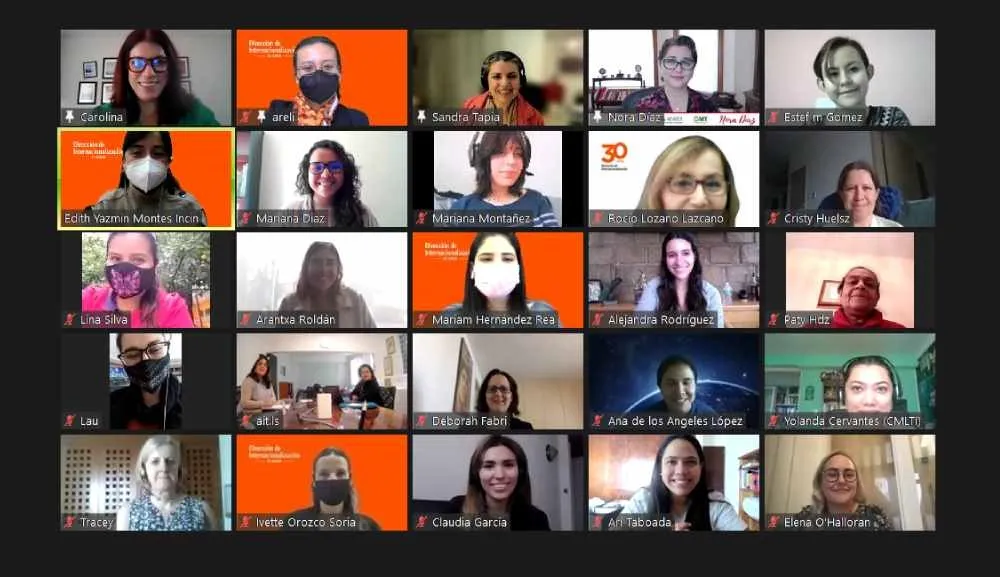In a Webinar, We Analyzed the Future of Translation and Interpretation

The event was led by a panel of experts in the profession, who shared their experience and opinions on a number of topics. Simultaneous interpretation was provided during the event.
On the International Day of Translation, a round table entitled "The Future of the Profession: Will Automated Translation Replace Translators and Interpreters?” was held as part of the anniversary celebrations of the Office for Internationalization, an event that was organized in collaboration with the School of Humanities, Philosophy and Letters of Anáhuac México University.
Important figures in the profession participated in this event, including: Nora Díaz, translator, interpreter and RWS certified instructor; Carolina Herrera, director of global services at Interprenet, a language services company in Chicago; and Sandra Tapia, interpreter and cultural consultant.
The round table was moderated by Areli Sánchez, resident translator of Anáhuac México University. Simultaneous interpretation was provided during this virtual platform by students enrolled in the Undergraduate program in Modern Languages and Cultural Management as part of an exercise.
The central topic of the round table was the progress of technology in the field of languages, although the panel was also asked to comment on other topics, including: why they decided to work in translation or interpretation; what types of adjustments they had to make during the pandemic and lockdown; and if there is new technology they would like to see introduced in the profession.
During the webinar, the speakers reminisced about the transition made from handwritten translations to using the typewriter, followed by the advent of the modern translation tools, programs and word processors, not to mention the introduction of the Internet and email, through which translators have access to clients around the globe, or the cellular phone, which offers access to live forums, teachers and colleagues.
When the discussion turned to the changes felt during lockdown, the panelists agreed that, although they are lucky to be able to work quite easily from home, the pandemic had devastating effects on the trade and they were forced to make adjustments rather quickly, proving that attitude and soft skills are essential in the trade.
In terms of the financial side, they confessed that rates have dropped drastically. On this point, Nora commented that she was asked by clients and agencies to lower her price even after they had already signed contracts. “Many translators who are less established had to concede for fear of losing their clients, while others debated whether it was worth their while, weighing the various factors, like volume of work and relationship with the client,” she clarified.
But it wasn’t all bad. The pandemic offered the opportunity to learn how to use new tools and become certified on different platforms, recognizing the importance of keeping up to date in one’s profession.
On this point, Sandra encountered many obstacles, but she quickly transformed them into opportunities. She went through a learning curve when she decided to embark on learning new tools and applying for certification on different platforms. She also agreed that it is critical to stay up to date, to brush up on one’s skills and to upgrade one’s work tools.
The final question for the panelists was whether there is technology they would like to see introduced into the profession. The answers were varied, including: headphones that are gentle on the ears and the need for reception in remote areas with no Internet service.
On the same topic, Caroline offered a few reflections on how the current technology can be used, but underlined the need to be able to adapt oneself, to continuously learn new things and to reflect on how one can be better prepared for the future.
After the closing remarks were made, Ariel Sánchez thanked the panelists, the audience and the students who interpreted the event: Alejandra Rodríguez, Arantxa Roldán and Mariana Montañez, as well as professor Elena O’Halloran for her support and the School of Humanities, Philosophy and Letters.
For more information:
Office for Internationalization
Edith Yazmín Montes Incín
edith.montes@anahuac.mx
